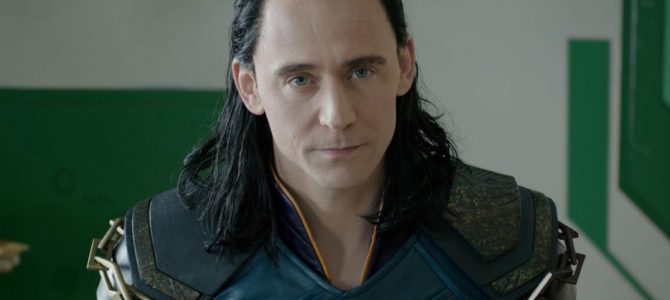
The MCU officially has their first openly gay main character. Sort of.
Midway through episode three of the latest MCU Disney Plus series “Loki,” a small conversation between the God of Mischief and an alternate universe version of himself called Sylvie reveals that both have a dating history of impermanent dalliances with both men and women. Lasting under 30 seconds, the bit of dialogue serves little plot function except to show the bonding between the two versions of Loki.
Unsurprisingly, the internet went wild. A new episode of a Disney Plus MCU series will always trend on Twitter, but a substantial quantity of the discussion for the episode was dedicated to this 30-second clip. It is unambiguously clear from this instance that Loki is bisexual, as is his female variant, but this is all to which the reveal amounts.
Across his many MCU appearances, Loki has never had a canonical love interest of either sex. He is certainly a charmer, passively flirting with a vast array of characters, from Jeff Goldblum’s tyrannical leader in “Ragnarok” to Sylvie in the aforementioned episode, but there has been nothing to even suggest a possible romantic or sexual relationship.
It is likely that the sum total endgame of this reveal is the line itself, a canonical declaration that Loki dates men and women, with no effect on his character or the narrative.
The China Problem
Disney Plus should be the place where Marvel could inch towards including gay characters, if they truly desired, as it is not currently launched in China. The Communist Chinese censors are not friendly to LGBT content, which is not formally banned but often flagged.
Due to the increasing importance of the Chinese market to inflate box office returns, studios and directors are seeking a means by which to balance attention-gaining representation in the West with acceptable content overseas. Although some find this type of move hollow and frustrating, it generates a substantial amount of press.
The press and social media were flooded with reports of Sulu from “Star Trek” or LeFou in the live-action “Beauty and the Beast” would be gay, but these instances would have gone unnoticed and remained unclear had it not been for press releases before the films premiered.
Marvel trafficked in a similarly cynical marketing strategy by loudly announcing an unambiguously gay character in “Avengers: Endgame,” only for the widely reported scene to be a comment by an unnamed man in a support group about a date he went on with another guy. “Endgame” did not need the attention, as it was the climax of a gargantuan franchise with an enormous fanbase and went on to break box office records. In fact, the moment was widely criticized, noted for its obvious attempts at pandering without any substance.
Some movies which fail to comply can either be banned in China or faced edits in order to appease the censors, which could severely harm the quality or clarity of the story. “Bohemian Rhapsody” endured cuts that rendered the narrative incomprehensible. To save their work from such a fate, without standing up to the censors, these ambiguous or easily-removed nods are treated as an adequate replacement.
The Future of the MCU
This move calls into question the handling of several existing and upcoming MCU characters. Taika Waititi, who is directing the upcoming “Thor: Love and Thunder,” and actress Tessa Thompson have expressed an interest in portraying Valkyrie as bisexual, as she is in the comics, after a canonical depiction was excised from “Thor Ragnarok.”
“The Eternals” is set to have a kiss between Brian Tyree Henry and his male love interest, but with how intensely director Chloe Zhao has spent last awards season pandering to China in order to ensure the film’s success, this heavily discussed event will likely be far less notable than advertised, akin to Sulu in “Star Trek” or the “Rise of Skywalker” kiss.
While they have yet to be formally announced, the storyline likely to be most affected by these next few decisions regarding gay characters and China is the Young Avengers. With America Chavez set to feature in the new Doctor Strange film, Kate Bishop being introduced in “Hawkeye,” and Wiccan, Speed, Patriot, and Stature all introduced in existing MCU projects, the onscreen adaptation seems inevitable.
Yet with many of their major storylines heavily featuring the relationship between Billy Kaplan and Teddy Altman, to the point their romance and the mission objectives are often intrinsically narratively tied, this tip-toeing towards unambiguity could give some fans hope that will likely result in disappointment.
Gender and Shapeshifting
This bisexuality reveal is not the only aspect of Loki’s character garnering attention in discussions of representation. Stills from the initial trailer had shown Loki’s paperwork to detail his “sex” as “fluid.”
Some have taken this to mean that Loki identifies as gender-fluid, even as his portrayal appears to negate this supposition. Although Loki has a female variant, he is referred to as a man, with masculine pronouns and words like “son,” and “brother.” The fluidity comes in the form of his ability to shapeshift.
Many comic book shapeshifters, including Loki, seem to have some flexibility regarding gender, as the physical ability to adjust into anyone at a moment’s notice would alter one’s relationship to any immutable characteristic. If the corporeal form is as malleable and ephemeral as it is for people like Loki or X-Men’s Mystique, the defining labels follow suit, especially since Loki has given birth and the female Mystique was nearly made Nightcrawler’s father by Chris Claremont.
For Marvel shapeshifters, gender fluidity is not treated as an identity but a facet of a complex superpower. There are no new pronouns to be demanded, just the acknowledgment that they can physically shift between appearances at will, at times taking on new identities with the new forms.
Ultimately, Loki’s coming out of sorts will likely have little tangible impact on the future of the MCU. He is not slated to return in the next Thor film, despite rumors persisting to the contrary. Romantic subplots appear to be rightfully taking a backseat in favor of its time-bending, interdimensional adventures, and with only three episodes left of “Loki,” this does not appear to be changing anytime soon.
As for the rest of the MCU, fans of characters like Wiccan or Speed should not hold their breath for their being depicted faithfully. So long as Communist China is a major market, studios will be more interested in expanding the market than standing up for their creations and against censorship. Instead, much ado will continue to be made about these minor moments, garnering the desired attention while forgoing any meaningful development.









